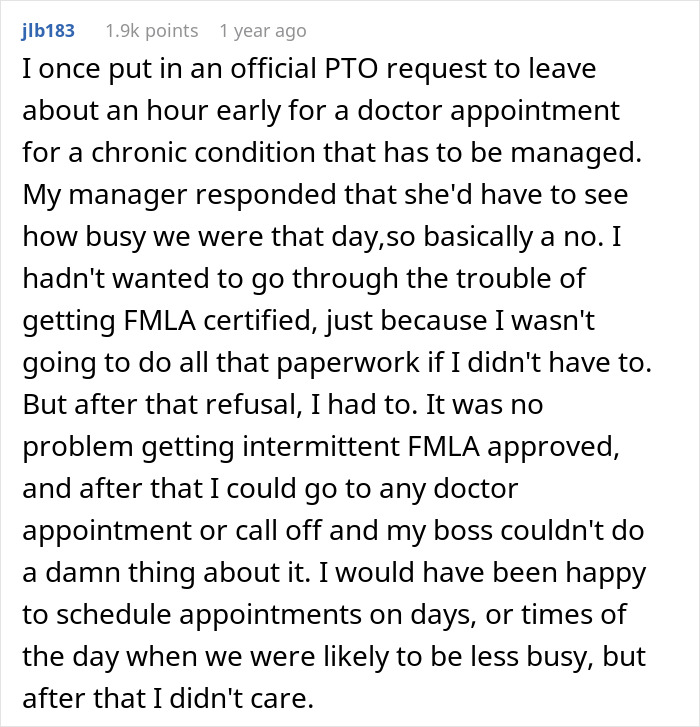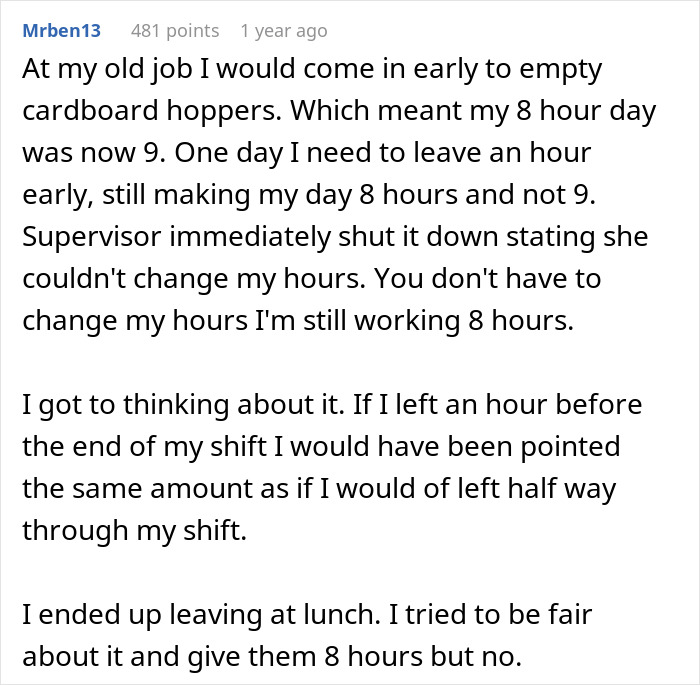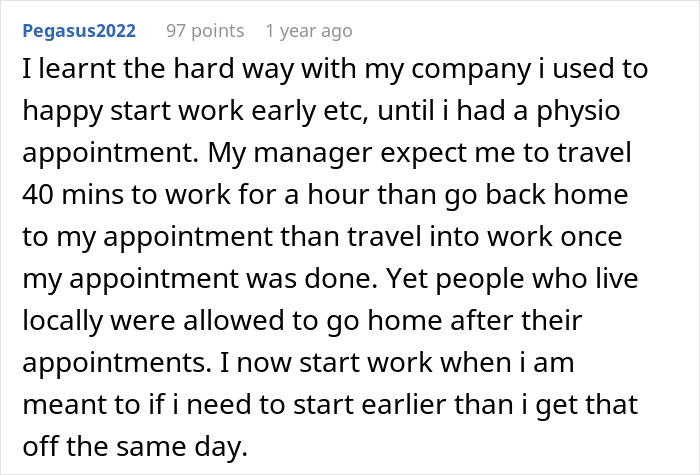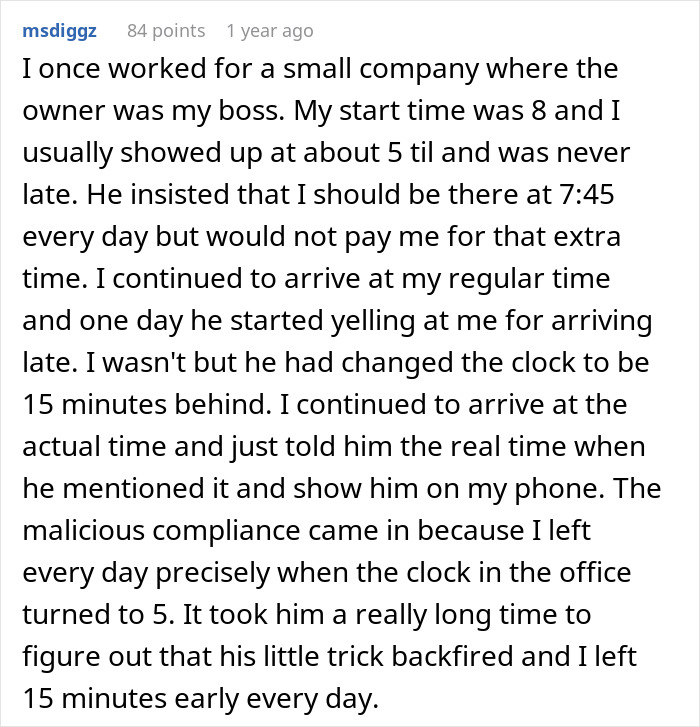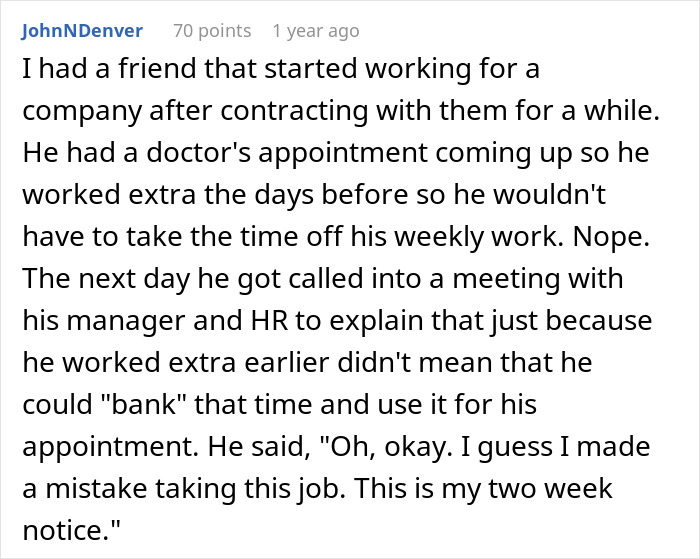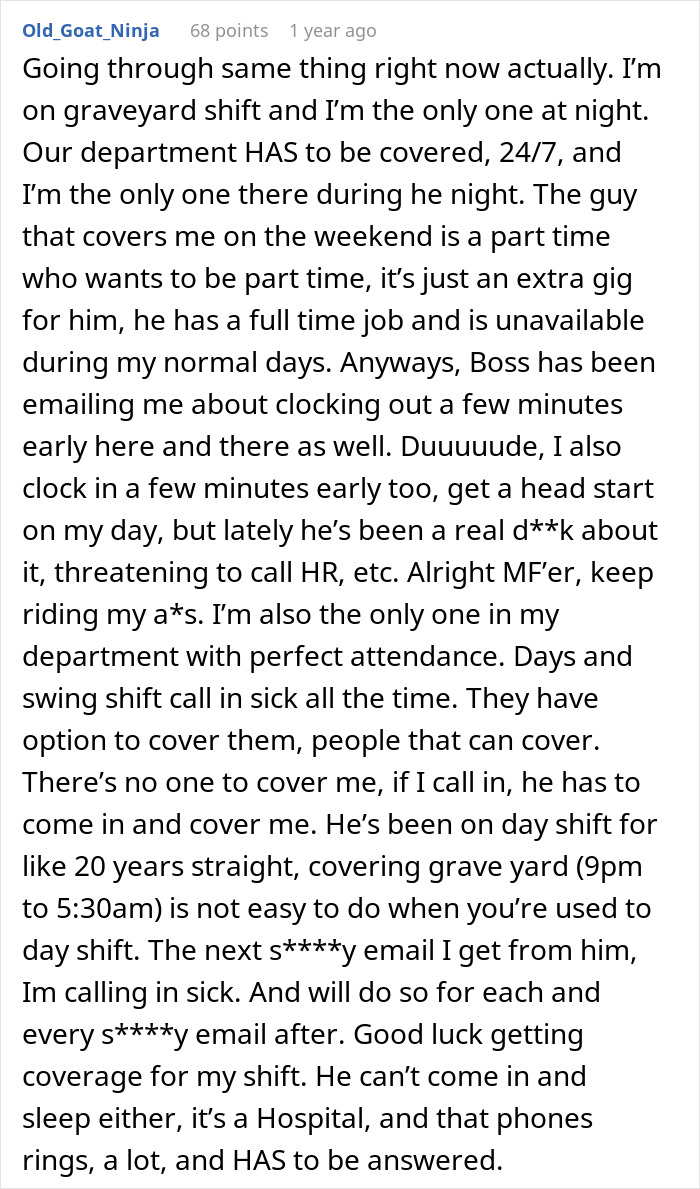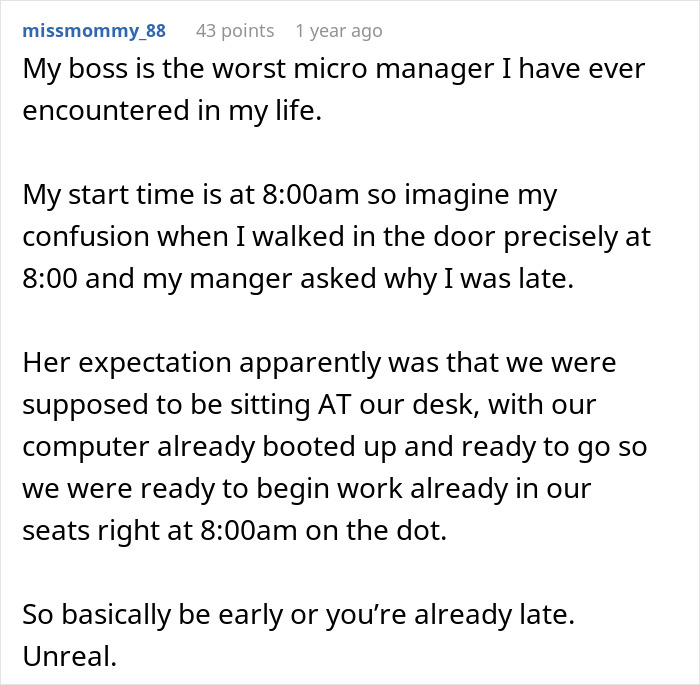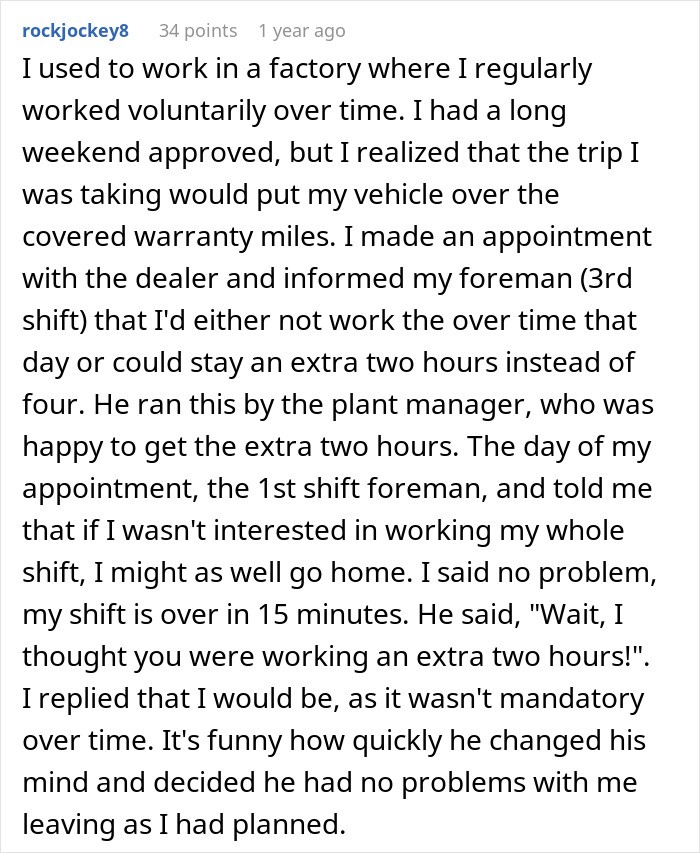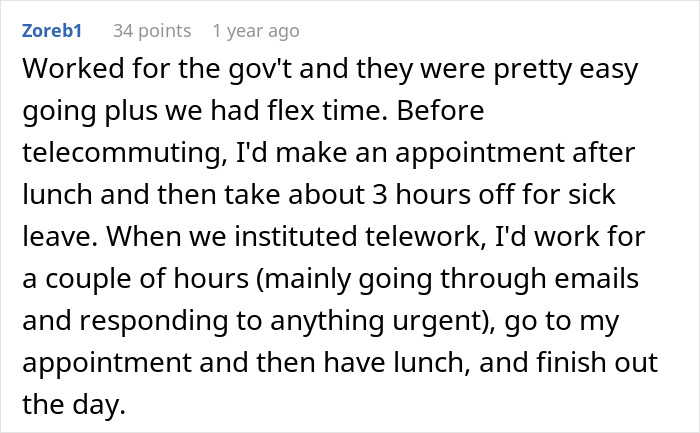Nobody plans to show up for work a few minutes late, but sometimes, life just happens. Your bus might break down, you may get caught in traffic due to a car accident, your coffee might spill down your shirt when you were almost out the door, or your alarm might have failed to go off. As long as this doesn’t happen every day, it shouldn’t be a big deal, right?
Well, according to one woman’s boss, employees should never be 5 minutes late or leave 5 minutes early. Below, you’ll find a story that this woman posted on Reddit detailing how she maliciously complied with her boss’ strict rules, as well as some of the replies amused readers shared.
Some bosses are extremely strict about employees working for the entire day

Image credits: Tima Miroshnichenko / Pexels (not the actual photo)
So instead of leaving a few minutes early, this woman maliciously complied with her boss’ rules to make the most of her day
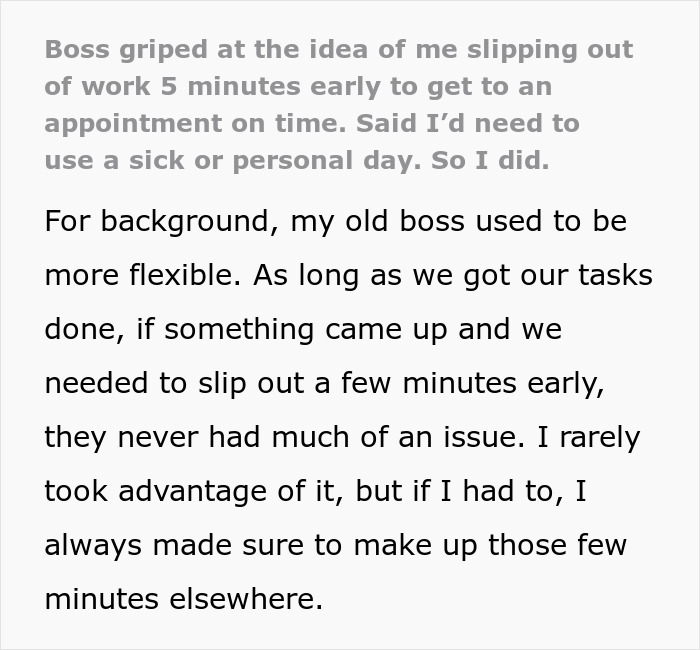
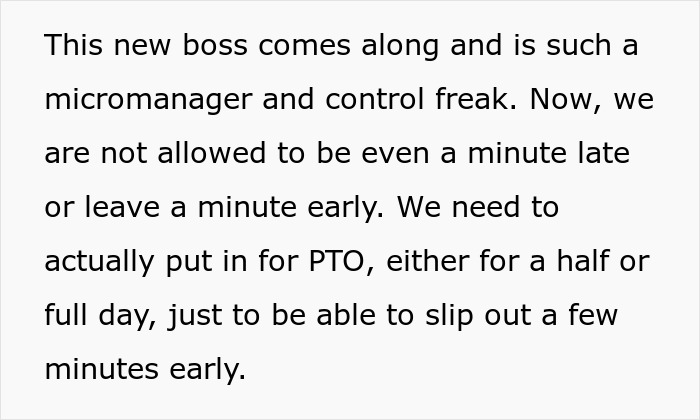
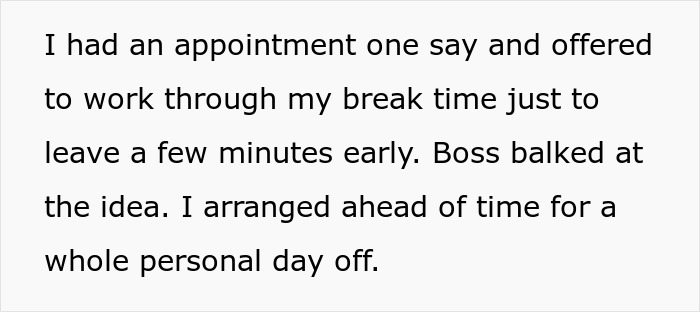

Image credits: Elina Fairytale / Pexels (not the actual photo)
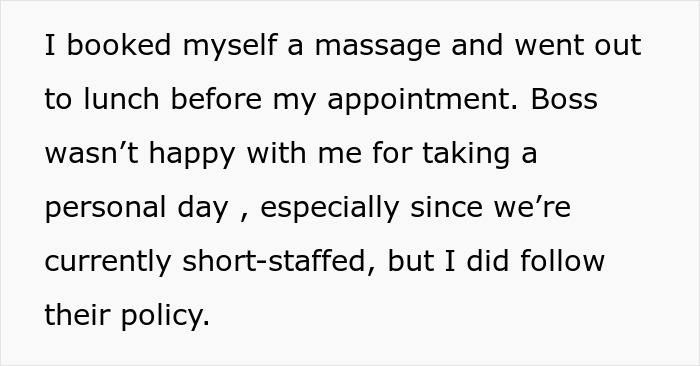
Image credits: Bella4077

Image credits: Andrea Piacquadio / Pexels (not the actual photo)
Nearly a third of employees are late for work at least once a month
It’s understandable for employers to have rules when it comes to being late for work or leaving early at the end of the day. Their teams are trusted to be working the whole day, and it’s important that they accomplish all of their tasks during their time in the office. But it’s also important to be reasonable when it comes to timetables. Everyone knows what it’s like to hit unexpected traffic or wake up late every once in a while. Showing up 10 minutes late to the office does not mean that the whole day is wasted.
According to Zippia, 29% of employees in the US admit to being late for work at least once a month, and a quarter of those workers report that traffic is their main obstacle in being on time. Other common issues that cause employees to be late are personal problems, oversleeping, child-related issues, health issues, family-related issues, searching for lost items, and home-related issues.
Now, tardiness can become a problem when it starts costing your employer a lot of money. Zippia reports that the average employee costs their company between $500-$600 per year due to showing up late, and 41% of bosses have actually had to fire a team member for being late on too many occasions. But many workers don’t believe that it’s actually necessary to be on time every single day.

Image credits: Mizuno K / Pexels (not the actual photo)
Allowing workers to leave early can help them prevent burnout and maintain a healthy work-life balance
In fact, 18% of bosses admit that punctuality is not a big deal as long as all of their employees’ get their work done. And 59% of employees consider working 9 to 5 to be an outdated practice, so plenty don’t feel the need to prioritize being exactly on time. Many also look at leaving early in the same way. Nowadays, over 75% of employees are looking for flexible working hours, and they’re fed up with having to sit around in the office once all of their tasks are complete.
Business First also reports that there are various benefits to allowing employees to leave early, including the fact that engaged employees work harder. If they know they’ll be able to go home once everything is done, they’ll be more likely to be present and productive from the get-go each day. Plus, finishing early can help prevent burnout, something all employers should be concerned about today.
We all deserve to have a healthy work-life balance, and sometimes that includes leaving the office a bit early. Plus, if you have to schedule a doctor’s appointment, it’s much better for your boss if you work 80% of the day and leave slightly early than just miss out on the whole day altogether. And Business First notes that everyone ends up wasting some time during the day. Whether it’s watching YouTube videos or chatting by the coffee machine for 20 minutes, it’s impossible to be productive for 8 hours straight.

Image credits: Jonathan Borba / Pexels (not the actual photo)
Micromanaging employees creates more issues than it solves
Another issue in this particular story is how the boss tried to micromanage their employees. This is an easy trap for employers to fall into, but it’s also a quick way to ruin their workers’ trust and create tension in the office. According to Forbes, 79% of employees report that they’ve experienced micromanaging at work, and 85% say that this negatively impacted their morale. 71% say that micromanagement took a toll on their job performance as well, and over a third of employees actually changed jobs to get away from a controlling boss.
Keeping too tight of a leash on employees prevents bosses from fostering a culture of trust, collaboration and autonomy in the workplace, and it often makes employees feel undervalued. Aside from the fact that it’s annoying to constantly have someone looking over your shoulder, it can slow down the workflow immensely.
Instead of being able to tune into their work, employees are constantly having to explain themselves and report back to their bosses. At the same time, it’s impossible for managers to get much done when they’re too worried about what their workers are doing every minute of every day.
We would love to hear your thoughts on this situation in the comments below, pandas. Then, if you’re interested in checking out another Bored Panda piece discussing malicious compliance in the workplace, look no further than right here!
Readers supported the woman for taking off the whole day and called out her boss for their unreasonable policy


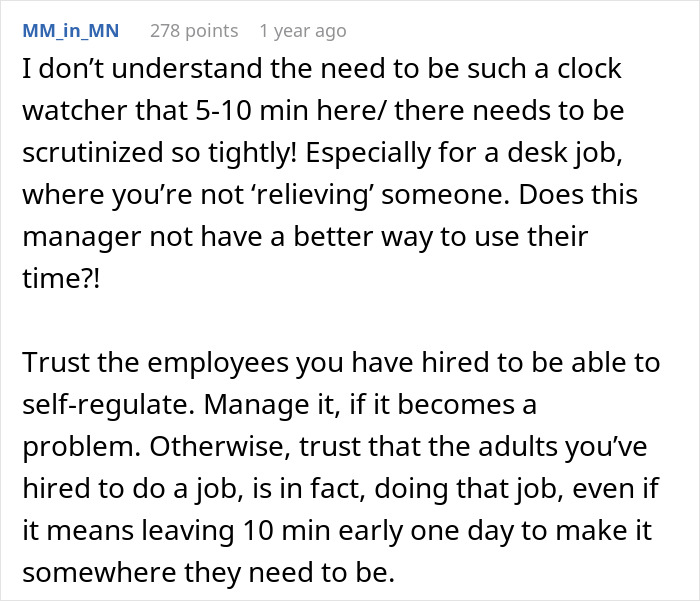
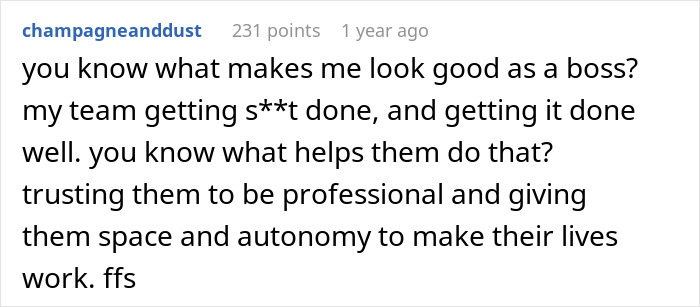
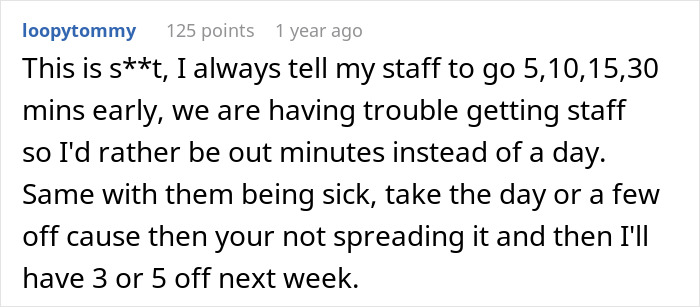
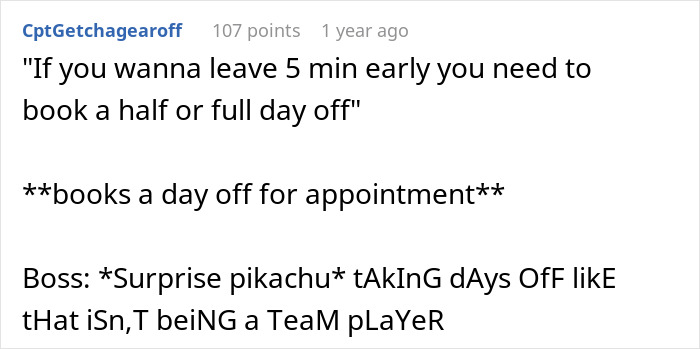

Some even had similar stories of their own to share
